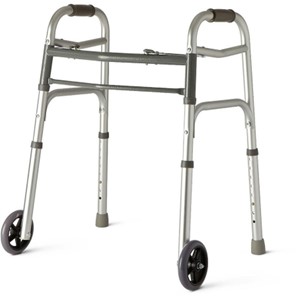A nurse receives a new prescription over the telephone from a client's provider. Which of the following actions should the nurse take first?
Document the prescription as a telephone prescription in the medical record.
Read back the prescription to the provider.
Ensure that the provider signs the prescription.
Write down the complete prescription.
The Correct Answer is D
When a nurse receives a new prescription over the telephone from a client's provider, the first action the nurse should take is to write down the complete prescription. This ensures that the nurse has an accurate record of the prescription and can refer to it when administering medication or providing care.
Option a is incorrect because documenting the prescription as a telephone prescription in the medical record is important but not the first action.
Option b is incorrect because reading back the prescription to the provider is important but not the first action.
Option c is incorrect because ensuring that the provider signs the prescription is important but not the first action.
Nursing Test Bank
Naxlex Comprehensive Predictor Exams
Related Questions
Correct Answer is C
Explanation
When using a two-wheeled walker, the client should stand with their elbows slightly flexed while holding the walker. This allows for proper posture and support while using the walker.
Option a is incorrect because stooping forward can cause strain on the back and neck.
Option b is incorrect because moving the walker too far ahead can cause instability and increase the risk of falls.
Option d is incorrect because picking up the walker with each step can cause fatigue and decrease the effectiveness of the walker.

Correct Answer is A
Explanation
When providing teaching about health promotion guidelines to a group of young adult male clients, the nurse should include the recommendation to have a dental examination every 6 months. Regular dental examinations can help prevent dental problems and maintain good oral health.
b) A testicular examination is recommended annually, not every 2 years.
c) A tetanus booster is recommended every 10 years, not every 5 years.
d) A herpes zoster immunization is recommended for adults age 60 and older, not age 50.

Whether you are a student looking to ace your exams or a practicing nurse seeking to enhance your expertise , our nursing education contents will empower you with the confidence and competence to make a difference in the lives of patients and become a respected leader in the healthcare field.
Visit Naxlex, invest in your future and unlock endless possibilities with our unparalleled nursing education contents today
Report Wrong Answer on the Current Question
Do you disagree with the answer? If yes, what is your expected answer? Explain.
Kindly be descriptive with the issue you are facing.
